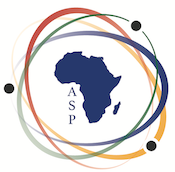Speaker
Description
This study explores the concurrent assessment of RF interference exhausting key performance indicators (KPIs) and measurement techniques personalized for mobile telecommunications in Nigeria. The militating challenges responsible for the low quality of services in telecom sector are identified while possible resolutions are proffered for effective communications. The proliferation of mobile telecommunications in Nigeria has headed to escalation in radio frequency (RF) interference, heartrending network enactment and subscriber experience. The collected statistics were typeset to accomplish numerical examination into Statistical Package for the Social Sciences (SPSS) processor software. By leveraging real-time data obtained, the signal variability is validated via one way Analysis of Variance (ANOVA). The upshot reveals that MTN, Globacom and Airtel observed were not statistically significant in terms of variability in signal quality as p > 0.05. Contrariwise, the disparity in signal quality of 9Mobile link depicts statistically significant values as p < 0.05. The investigation ascertains interference bases, enumerates their impression on network performance, and actionable discernments is provided for boosting network quality. The valuation outline incorporates innovative signal observing apparatuses and KPI exploration to augment policymaking for mobile telecommunication management. The discoveries highpoint the significance of instantaneous monitoring in justifying interference, refining service distribution, and subsidiary the unremitting development of Nigeria’s mobile telecommunications subdivision. The research also obliges as a basis for upcoming study in RF interference administration and communications enactment optimization. Installations of Base Transceiver stations (BTS) are hereby suggested in the study area to enhance the signal strength and quality of the mobile network.
| Abstract Category | Physics Education |
|---|
